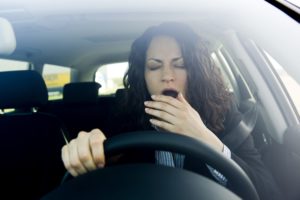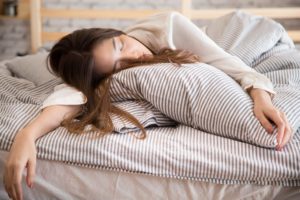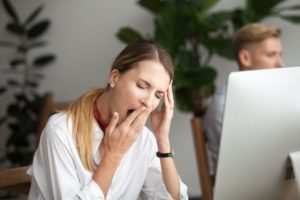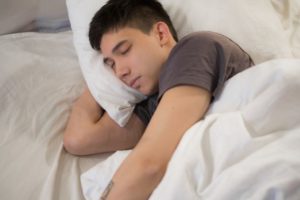When you buy through our links, we may earn a commission. Products or services may be offered by an affiliated entity. Learn more.
What Causes Excessive Sleepiness?
Excessive sleepiness or drowsiness refers to the urge or tendency to fall asleep when you are required to be awake, especially during daytime hours. When you feel excessively sleepy, you might doze off at inappropriate times, including during work or while driving.
Excessive daytime sleepiness (EDS) is generally considered a symptom or side effect rather than a primary disorder. Most people who have excessive sleepiness also have an underlying issue causing their drowsiness, even if they are unaware of it. Pinpointing the cause of one’s excessive sleepiness is the first step toward overcoming it.
Causes of Excessive Sleepiness
Many people commonly experience excessive daytime sleepiness (EDS), with research showing that up to 25% of the U.S. population is affected. There is no universal cause or treatment for excessive daytime sleepiness, because different people experience it for various reasons.
Research shows people experience EDS as a result of a wide variety of underlying causes, including:
- Sleep deprivation due to lifestyle, jet lag, or sleep problems
- Sleep disorders
- Disturbed sleep due to environmental disruptions
- Neurological disorders, including Parkinson’s disease and epilepsy
- Mental health conditions such as depression and anxiety
- Health problems, including heart and liver failure
- Medications such as pain relievers
Looking to improve your sleep? Try upgrading your mattress.
Sleep Disorders That Commonly Cause Excessive Sleepiness
Excessive daytime sleepiness is a symptom of many sleep disorders, including:
- Obstructive sleep apnea
- Restless legs syndrome
- Periodic limb movements disorder
- Circadian rhythmsleep disorders, such as jet lag or shift work sleep disorder
- Narcolepsy
- Parasomnias, such as sleepwalking, night terrors, and sleep-related leg cramps
- Menstrual-related sleep disorder, which may include excessive daytime sleepiness and insomnia in the days leading up to menstruation
- Idiopathic hypersomnia
Of the many sleep disorders that can cause EDS, only two present primarily as excessive sleepiness: narcolepsy and idiopathic hypersomnia. However, in some cases a person is unaware of additional symptoms that occur while they are asleep. For example, a person with obstructive sleep apnea might not realize they stop breathing during the night, and someone with periodic limb movements disorder might not realize they often twitch while asleep.
Talking to your doctor about your symptoms is the best way to begin understanding your personal causes of sleepiness, whether or not a sleep disorder is a factor.
Identifying and Treating Causes of Excessive Sleepiness
Learning the cause of your excessive sleepiness is essential because of the significant toll excessive sleepiness can take on your life. Excessive sleepiness in adolescents can negatively impact their school performance, personal relationships, overall health, and driving ability . In adults, excessive sleepiness can greatly affect their work, leading to lower productivity, more absences, and even an increased risk of on-the-job accidents .
If you are experiencing excessive sleepiness, tell your doctor. They can work with you to determine the cause and identify appropriate treatments. To diagnose underlying problems, your doctor may:
- Ask questions about your sleep quality, sleep habits, and daytime drowsiness concerns
- Ask questions about your medical history, including any past diagnoses
- Ask you to complete a questionnaire rating the sleepiness levels you feel at different times of day
- Order a sleep study
- Order other medical tests or refer you to another type of doctor
Depending on what comes out of your examination, your doctor will likely recommend one of the following treatments for excessive daytime sleepiness:
- Improved sleep hygiene, such as a consistent bedtime and nighttime routine
- Treatment for underlying sleep disorders, such as a continuous positive airway pressure (CPAP) machine for obstructive sleep apnea or sleep medications for other disorders
- Further evaluation by a physician to treat underlying disease
- Medications that promote wakefulness

Still have questions? Ask our community!
Join our Sleep Care Community — a trusted hub of product specialists, sleep health professionals, and people just like you. Whether you’re searching for the perfect mattress or need expert sleep advice, we’ve got you covered. Get personalized guidance from the experts who know sleep best.
References
4 Sources
-
Chervin, R. D. (2021, September 29). Approach to the patient with excessive daytime sleepiness. In T. E. Scammell (Ed.). UpToDate.
https://www.uptodate.com/contents/approach-to-the-patient-with-excessive-daytime-sleepiness -
Jehan, S., Auguste, E., Hussain, M., Pandi-Perumal, S. R., Brzezinski, A., Gupta, R., Attarian, H., Jean-Louis, G., & McFarlane, S. I. (2017). Sleep and premenstrual syndrome. Journal of Sleep Medicine and Disorders, 3(5), 1061.
https://www.ncbi.nlm.nih.gov/pmc/articles/PMC5323065/ -
Hein, M., Mungo, A., Hubain, P., & Loas, G. (2020). Excessive daytime sleepiness in adolescents: Current treatment strategies. Sleep Science, 13(2), 157–171.
https://pubmed.ncbi.nlm.nih.gov/32742588/ -
Institute of Medicine (US) Committee on Sleep Medicine and Research. (2006). Functional and economic impact of sleep loss and sleep-related disorders. In H. R. Colten & B. M. Altevogt (Eds.), Sleep disorders and sleep deprivation: An unmet public health problem (pp. 137–172). National Academies Press (US).
https://www.ncbi.nlm.nih.gov/books/NBK19958/









